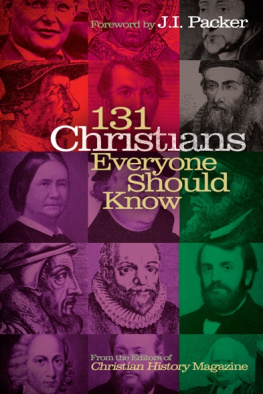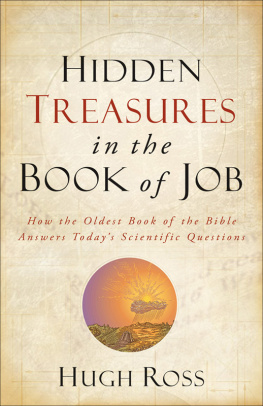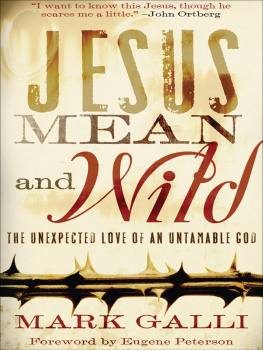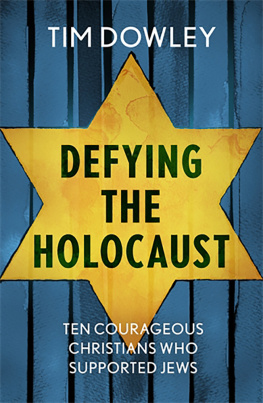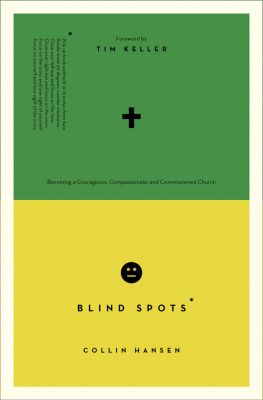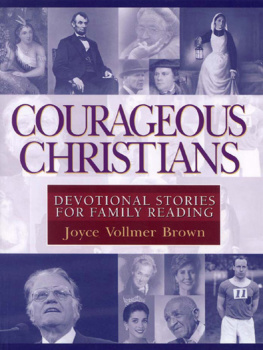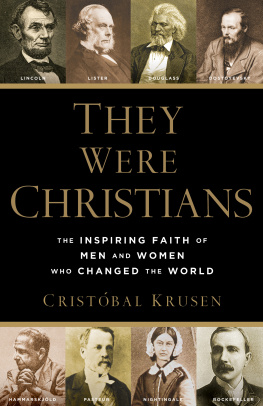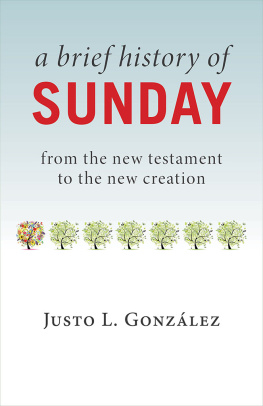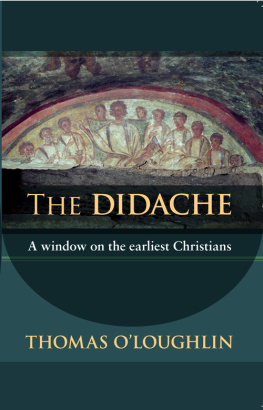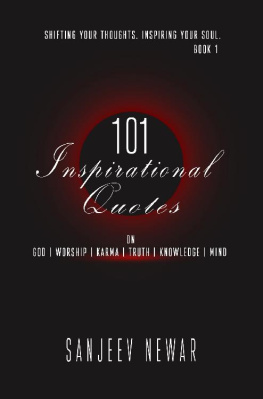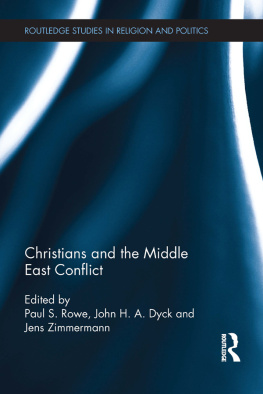
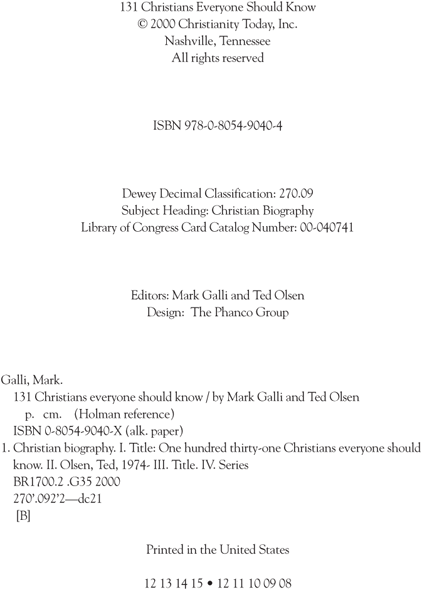
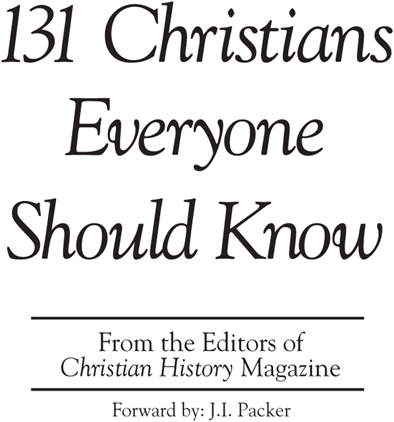
Foreword
When Henry Ford declared that history is bunk, he no doubt thought he was uttering wisdom. But his dictum is a classic instance of well, bunk, and bunk in its purest form. Both the processes and the characters of history have a vast amount to teach us; studying them matures our judgment and frees us from blind submission to present-day prejudices. It has often been said, if we will not learn from history, we sentence ourselves to repeat its mistakes. This is supremely true of Christian history, which shows us the conflict of God's Word with the world, in and through the lives of his servants, and sets before us the possibilities of living for God that had never before entered our minds.
Readers of the excellent journal, Christian History, of which Mark Galli and Ted Olsen have been editors, will know exactly what I mean when I say that, and non-readers of the journal who read the present volume will soon find out. There is not a dull line in this book; its well-chosen 131 characters come vividly to life, as our brothers and sisters in Christ; and learning the lesson of their careers is as pleasant a task as chewing candy. If you like the thought of history with edification, and without tears, this is certainly a book for you. Its authors have served you well.
J.I. Packer
Regent College
Vancouver
Acknowledgements
Some profiles were adapted from articles written in Christian History over the years; and first drafts of others were contributed by Kelvin Crow, Kathy Mulhern, William Martin, and Mary Ann Jeffreys. Most, however, were written by the authors, and whether as editors or authors, they take responsibility for any errors that remain therein.
Introduction
It has been said that history is biography, although you wouldn't know it by reading many history books. Too often stories, quotes, and anecdotes are replaced with analysis, statistics, grand social movements, and dates piled upon one another. No wonder people find history boring.
We don't, and that's because the nature of our workpublishing a history magazine for a general audiencecontinually forces us to ask a simple question: What's really interesting about this? Most of the time, the answer lies in the people who have made history happen, without whom important dates would be just numbers. Here we present 131 of those interesting, and important, people.
Why 131 exactly? We determined first some of the callings Christians have practiced through the ages, then chose the ten (or, in one case, eleven) most important and interesting for each calling. Most of our choices can be easily defended, but we admit some are arbitrary. Space constraints have forced us to leave out some key figures (like poet W. H. Auden, Pentecostal preacher William Seymour, and theologian Reinhold Niebuhr, for instance), and personal passions have dictated we include others less well-known (like theologian John of Damascus and adventist William Miller).
As for the adjective Christian: some of the individuals profiled here had, because of their times and circumstances, a limited understanding of the full-orbed faith. But since we see the same limitations in ourselves, it seemed only right that we err on the side of charity in determining who was Christian.
This doesn't mean we've chosen the 131 Christians we most admire or with whom we agree. This is a book about 131 Christians everyone should know because of what they've contributed to history and because of their intrinsic interestnot 131 Christians we should all emulate. Though certainly all have something to teach us.
As such, this is not a bad place to begin research, since we've striven to remain accurate throughout, separating myth from history where necessary, and including key dates and quotes. But the book is primarily designed for those who want to have a deeper appreciation of their Christian heritageand enjoy it.
Mark Galli
Ted Olsen
Christian History
Timeline
IMPORTANT EVENTS IN CHURCH HISTORY
THE AGE OF JESUS AND THE APOSTLES
Crucifixion of Jesus; Pentecost
Stephen martyred; Paul converted
Paul begins missionary journeys
Council of Jerusalem
Paul's Letter to the Romans
Fire of Rome; Nero launches persecutions
Peter and Paul executed
THE AGE OF EARLY CHRISTIANITY
Destruction of Jerusalem by Titus
Ignatius of Antioch martyred
Justin Martyr dedicates his First Apology
Polycarp martyred
Montanist movement begins
Irenaeus writes Against Heresies
Tertullian begins writing
Origen begins writing
Earliest known public churches built
Cyprian elected bishop of Carthage
Decius orders empire-wide persecution
Antony takes up life of solitude
Great Persecution begins under Diocletian
THE AGE OF THE CHRISTIAN EMPIRE
Conversion of Constantine
Donatist Schism begins
Edict of Milan
Eusebius completes Ecclesiastical History
First Council of Nicea
Ulphilas, translator of Gothic Bible, becomes bishop
Basil the Great founds monastic community
Athanasius's letter defines New Testament canon
Christianity made state religion of Roman Empire
First Council of Constantinople
Augustine converts to Christianity
Ambrose defies emperor
Chrysostom consecrated bishop of Constantinople
Jerome completes the Vulgate
Rome sacked by Visigoths
Council of Ephesus
Patrick begins mission to Ireland
Leo the Great consecrated bishop of Rome
Valentinian's Edict strengthens primacy of Rome
Council of Chalcedon
Dionysius the Pseudo-Areopagite writes
Boethius completes Consolation of Philosophy
Justinian publishes his legal Code
Benedict writes his monastic Rule
Columba establishes mission community on lona
THE CHRISTIAN MIDDLE AGES
Gregory the Great elected Pope
Ethelbert of Kent converted
Muhammad's hegira: birth of Islam
Synod of Whitby
Boniface begins mission to the Germans
Controversy over icons begins in Eastern church
Bede's Ecclesiastical History published
Battle of Tours
Donation of Constantine written about this time
Pepin III's donation helps found papal states
Alcuin becomes royal adviser to Charles
Second Council of Nicea settles icon controversy
Charlemagne crowned Holy Roman Emperor
Treaty of Verdun divides Carolingian Empire
East-West conflict over Photius begins
Cyril and Methodius begin mission to Slavs
Monastery at Cluny founded
Christianization of Russia
1054 East-West Split
1077 Emperor submits to pope over investiture
1093 Anselm becomes archbishop of Canterbury
1095 First Crusade launched by Council of Clermont
1115 Bernard founds monastery at Clairvaux
1122 Concordat of Worms ends investiture controversy
1141 Hildegard of Bingen begins writing
1150 Universities of Paris and Oxford founded
1173 Waldensian movement begins
1208 Francis of Assisi renounces wealth
Next page
